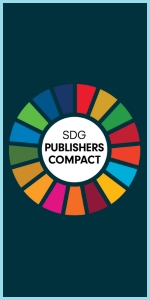This review describes the impact of drought on yield, trends in yield for boosting crop yields to meet the projected demands of rising global population by 2050, and genetic gain achieved by plant breeding in the last decades in wheat. In addition, it discusses recently developed techniques (i.e. genomic selection and high-throughput phenotyping) integrated with current approaches for improving drought in wheat.

Crop and Pasture Science
Volume 69 Number 3 2018
CP17310Assessing the role of genetics for improving the yield of Australia’s major grain crops on acid soils
Acid soils remain an important constraint to crop production in Australia and globally. It is likely that crop yields on acid soils can be increased with further breeding and biotechnology. This review summarises the known variation in acid-soil tolerance in Australia’s most important grain crops and assesses the potential for genetics and biotechnology to increase yields.
CP17224Modern hexaploid wheat differs from diploid and tetraploid ancestors in the importance of stress tolerance versus stress avoidance
Wheat genotypes possess two strategies of avoidance and tolerance to adapt to high temperature and weak radiation stress; diploid and tetraploid wheats acquired avoidance mechanism to adapt to abiotic stress; modern hexaploid wheat varieties displayed a stronger tolerance to the stress environment; tolerance and avoidance strategies respectively accounted for 60% and 22% of the variations in grain yield.
CP17329Mapping quantitative trait loci for cold tolerance at the booting stage in rice by using chromosome segment substitution lines
Low temperature induced spikelet sterility at the booting stage was investigated in a CSSL population under natural conditions. Eight major QTLs for cold tolerance were identified. Five QTLs might be new.
CP17259Phenotypic and metabolic variation among spring Brassica napus genotypes during heat stress
The ability to improve heat tolerance within Brassica napus is needed to enable genetic gain in a warming climate. This research demonstrates the existence of genetic variation to heat stress within B. napus. This discovery will facilitate the improvement of heat tolerance within B. napus and ensure the sustainable growth of this important oilseed going forward.
CP17259 Abstract | CP17259 Full Text | CP17259PDF (738 KB) | CP17259Supplementary Material (645 KB) Open Access Article
CP17357Combining ability and heterosis analysis for mineral elements by using cytoplasmic male-sterile systems in non-heading Chinese cabbage (Brassica rapa)
Heterosis analysis was performed to exploit the crossing combinations with desirable positive effects of heterosis in terms of mineral element content. The superior parental lines and hybrid combinations for the improvement of mineral elements were found by analysis of combining ability in non-heading Chinese cabbage. Two isonucleus-alloplasmic lines of non-heading Chinese cabbage was verified with positive cytoplasmic effects in mineral elements including calcium and iron.
CP17439Crop yield responses to surface and subsoil applications of poultry litter and inorganic fertiliser in south-eastern Australia
Subsoil manuring potentially has both amelioration and fertilisation effects. To separate these effects, eight field experiments were carried out testing surface and deep placement of poultry litter and inorganic fertiliser with matched nutrition. Differences in crop yield were attributed to nutrients (particularly nitrogen) supplied by the amendment, and not to the amelioration of subsoil constraints.
CP17044Stomatal and photochemical limitations of photosynthesis in coffee (Coffea spp.) plants subjected to elevated temperatures
Elevated temperatures cause decreases in photosynthetic rates in C. arabica. Photochemical apparatus of coffee plants show great heat tolerance. Stomatal closure imposes the major limitation on C. arabica photosynthesis under elevated temperature.
CP17308Seed germination response of a noxious agricultural weed Echium plantagineum to temperature, light, pH, drought stress, salinity, heat and smoke
Echium plantagineum is a serious pasture weed in Australia. We conducted a study to understand the effects of range of environmental factors on this invasive species seeds. Temperature was influential on germination than light and the species is tolerant of a wide range of pH. Moisture may limit germination, as may elevated salinity. Management of this weed requires approaches that minimise soil seedbank input or prevent germination of soil seedbanks.



